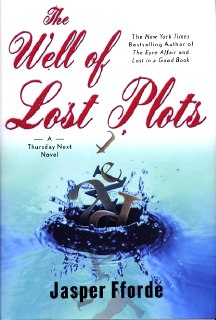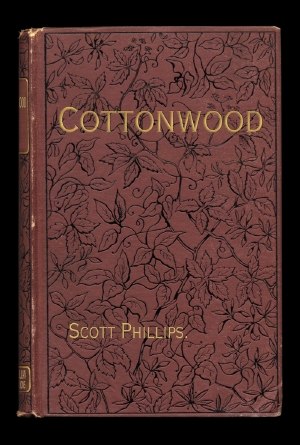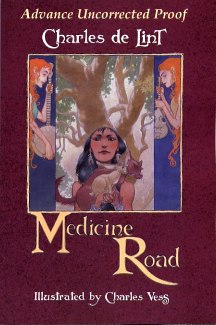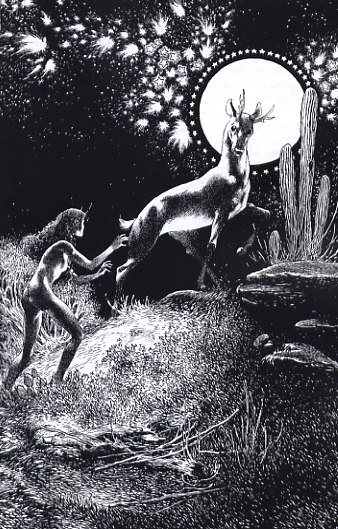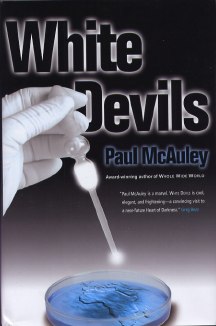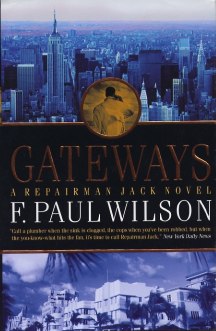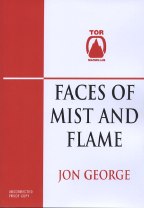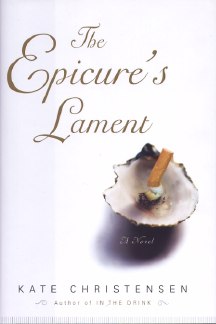|
|
|
This Just in..News from the Agony Column
|
02-13-04: That's another fine book you've got me to buy! |
|||
The
US Edition of Jasper Fforde's 'The Well of Lost Plots'
Well, in every case, a UK book comes with a fairly significant shipping cost, but the kinds of book buyers I'm talking about are utterly oblivious to this. And there are often cover differences and sometimes even minor text differences. But until Harper Collins picked up Jasper Fforde, I don't think the publishers were aware just how much the UK pre-buys were cutting into the sales of the eventual US releases. Jasper Fforde changed all that. Jasper Fforde's first novel, 'The Eyre Affair' was a delightful and wickedly smart novel that became an instant collector's item. First editions of the UK will set you back between one and two hundred dollars depending on the state. It also received some stellar reviews on both sides of the pond, from me especially. Fforde's fine writing earned it. Pengin Putnam released it here about a year later, and I'm sure it sold well, but apparently the US publishers quickly twigged to the amount their sales were being undercut by the advance publication in the UK. The ultimate end of fighting that trend is displayed in the US release of the latest Fforde novel, 'The Well of Lost Plots'. What’s the bottom line? The bottom line is that you're going to want both editions from now on. And you won't feel particularly cheated on either end of the transaction. The original UK editions have a beautiful, simple design ethic. But the new US edition of 'The Well of Lost Plots' sports something I've never seen before; an extra chapter written specifically for the US edition. It also includes a color plate frontispiece and, according to the prefatory author's notes "special features, including the making of documentary, deleted scenes from all three books, outtakes and much more" -- all on the website. And what more important feature do they add, something that we've all secretly wanted but were too afraid to ask for? A pronunciation guide to Ukian "English". No more guessing how to say "slough" or "Cheltenham". Yes, I do say that like it’s a good thing. The nicest thing is that in general, Jasper Fforde novels are easy reads the first time and easier the second time. So now you have a new edition to read the second time. And since the stagger is now about 8 months, you can read the American edition a nice four months before the next UK edition comes out. (If we're lucky.) I know that you’re going to be of two minds about all this. Yes, it seems a bit on the greedy side, but greed in the name of authors we like serves those authors well, and ensures that they'll get enough money to keep on writing. Fforde is clearly learning from the Film to DVD market. To my mind, his stuff is more entertaining than most films, so I say, thank you very much -- I have another book to buy!. |
|
02-12-04: Talking with TC Boyle |
|||
TC
Boyle on 'Drop City'
We talked about the web site during the interview and he's quite enthusiastic about it. As a writer, it offers a sort of sea-change in the way he interacts with his audience. That is, before, he might have received a few letters via his publisher or via a magazine in which a story of his had been published. But now, he's in immediate contact with a vast number of readers who pay extremely close attention to everything he says and does. It's clear that this instant and massive feedback really enlivens his writing. And as a reader, it's nice to know that the writer has us in mind. I must admit to being rather intimidated by the prospect of this interview. Boyle is one of the Great American Writers at work today, and I've enjoyed his work for years. I first encountered his stuff when I picked up a copy of 'World's End'. I'm pretty sure that I thought it was some kind of science fiction novel about, well, the apocalypse. Boyle did eventually write that novel -- it was the novel just before 'Drop City', titled 'A Friend of the Earth'. Turns out that 'World's End' is about a family from New York that has a history and a habit of losing limbs. I was quickly enmeshed in Boyle's complex, detailed history. Boyle did for reality what science fiction writers do in imagination -- he built a world of words, and frankly upstate New York is another planet so far as I'm concerned. Thereafter, I started reading his short stories, and my copy of 'The Road to Wellville' became one of those oft-loaned books that made the rounds again and again. In recent times he's been anointed with all sorts of high-priest of literature praise -- well deserved mind you, but rather intimidating for the local yokel NPR-affiliate interviewer. But it quickly became apparent that Mr. Boyle is just one hell of a great entertainer -- intelligent, witty and not particularly self-involved. We had a great conversation and damn, does he give one great reading of his own work. If his readings are legendary, there's a reason why. I've a got a brief slice from 'Drop City' at the onset of this interview. You definitely want to give it a listen. It's likely to send you out to the bookstore to buy the book, and I bet that you'll really enjoy it. Boyle's also quite skilled at being interviewed in that he manages to illuminate the novel but not spoil it for those who have not read it. It's an interview that works both ways, whether you've read the novel or not; and what else would you expect from a great writer but an interview that could only be called literary? |
|
02-11-04: The West Goes Dark |
|||
Scott
Phillips' Cottonwood Turns out the lights in Kansas
So, with the release of 'Cottonwood' as a McMillan limited, I'm well on my way. This novel is a sort of ultra-prequel to the other two. According to McMillan, "It features the great-grandfather of the Willefordian psychopath Wayne Ogden from THE WALKAWAY, and you can see where old Wayne got his genetic start on that path of amorality and morbid insouciance." Scott Phillips is currently touring to support this novel, and I'd suggest that you seek him out -- but buy the Mcmillan edition if you want something that's both an ultimate reading pleasure as well as collectible and likely to accrue value. There are still a few copies out there, and if you ask him, Dennis will send you one. I'll be giving my take on 'The Ice Harvest' and 'Cottonwood' in the next week, since I want to wrap them both up before Mr. Phillips shows up in my neighborhood. My read on this is that we have a talent similar to Joe R. Lansdale on the loose. And there's very little more we could ask for -- wild talents and morocco editions. And once again, note the beauteous cover by Michael Kellner. You should be looking at your own copy, not one of my two copies! My plan, by the way, is to snap up First/First HC's of his first two novels. Don't be outbidding me over there on Bookfinder.com! (Fortunately no bidding goes on there, but I don't want to see my supply dry up.) |
|
02-10-04: On the Road With DeLint, Vess and Sub Press |
||||||
An
Advance Look at Medicine Road
Vess has a style that is delicate and perfectly suited for the fey sensibilities of DeLint. He's able bring the world of faerie to life with his drawings, and DeLint is practically an inhabitant of that world at this point. Really -- think how much time he spends crafting his prose versions of a world in which the supernatural overlays the natural, in which the weave of the world is laced with magic and creatures that dart and scurry past our unseeing eyes. Trust me, that time he spends in creating this world for us in print is time lived in that world. Vess lives there as well. This is a 'Pickman's Model' solution; how does he get those beautiful drawings so filled with details? "But by God Elliot, it was a photograph from life!"
Now to the matter at hand, 'Medicine Road'. This is the first in a series of linked short novels about the Dillard Sisters. According to Bess, one of the sisters, "Back home there's more of us than you can shake a stick at -- seven of us sisters; nine girls altogether if you include our mother and Adie's little baby Lilly." Matriarchy is quite the thing these days in speculative fiction; from Graham Joyce's 'The Facts of Life', which features almost the same exact family living in Coventry in WWII, during the Blitz, to Stephen Baxter's eerie underground Marian cult in 'Coalescent', and even Terry Pratchett's 'Monstrous Regiment', we've seen our share of women in power. 'Medicine Road' is about Laurel and Bess, two "old timey" musicians who play music at bars and road houses. In a tour through the Sonoran Desert, they are drawn into an ages-old wager between Native American Spirits, prime DeLint material. I've offered up the cover and one of the illustrations, but this generously-filled short novel looks to be the start of a very classy and potentially classic series, a small-press collaboration between writer, artist and publisher with each contributing what it takes to make a whole much greater than the sum of the parts. In other words, a typical matriarchy, in this case, made up of men. |
|
02-09-04: The Next Alastair Reynolds Novel, White Devils, Dark Gateways, A New Standard & Finding Your Inner Old Coot |
||||
The
Next Alastair Reynolds Novel
"It starts off in what is almost the real world, with a struggling private detective (an American living in Paris) trying to solve a low-key murder case in an alternate 1959. Then it opens out into a big, weird, interstellar adventure (I hope) with lots of neat SF stuff in it: wormhole travel, space battles, huge alien structures, etc. In some respects it's attempt to do a proper fusion of noir and SF - I think I got half way there in Chasm City, but this has a real detective and a real crime that needs solving. It's demanding a lot of research, but that's turning out to be part of the fun as well - I've actually ended up listening to some jazz. The book's provisional title is Century Rain, and the current schedule has it coming out in October." |
||||
I must say, however, that McAuley does seem to be moving more towards subjects that will open his work up to a wider audience. His earlier works trend towards the more baroque and surreal, while his last two would not have been out of place on the US bestseller lists. Or they would have been out of place only in that they contain both high quality prose and intelligent speculation in addition to a gripping plot. So it's no surprise to find me enthused by his latest novel, 'White Devils', just out from Tor. The premise is one-hundred percent guaranteed to get my attention. Set thirty years in the future, 'White Devils' begins as Nicholas Hyde is investigating a massacre in the Congo when he and his party are attacked by a band of fierce, apelike creatures. That is guaranteed, on-screen monsters, and readers should know that I generally need a drool-cup in the presence of such. Ape-like monsters have a great history in speculative fiction and in Fortean research. I have about 5 megabytes of text files on Bigfoot sightings alone. You can't forget Loren Coleman's true-life Bigfoot adventure story 'Tom Slick and the Search for the Yeti'. While most people want to have their sasquatches be benevolent leaf-eaters, there are some wonderfully terrifying portrayals of them as something rather more dangerous. But let's not go in that direction. Otherwise, I'll be forced to bring out Loren Coleman's lecture on the Sex Life of Bigfoot. In weird fiction, my favorite ape-like monsters are found in H. P. Lovecraft stories. My favorite is 'The Lurking Fear', which, I'll wager, has more than a little influence on this McAuley title. But while McAuley always writes a toe-tapping tale of terror, his finest work comes in his characters and his speculations. Mariella Anders, of 'The Secret of Life' was not an easy character to like, which made her all the more compelling as a center for the events which unfold in the course of the novel. One hopes that his predictive ability doesn't prove as well-tuned as it was for 'Whole Wide World', which offered up a thriller that was eerily prescient of the events of September 11 and the response to those events, both equally frightening. Predictive accuracy is definitely not the job of science fiction. But science fiction that's scary always seems predictive. |
||||
Repairman
Jack Enters Gateways
His latest Repairman Jack novel, also out from Tor is 'Gateways'. It's another novel I'm barely able to contain myself from reading (only an intense interview deadline keeps me away from this and others). Readers familiar with the series will find the very title ominous. And I must say that the cover is very effectively evocative of the milieu of the novels; a teeming metropolis behind which lurks something larger, more dangerous than the city itself. 'Gateways' finds Jack reconciling with his father in Florida. There he once again meets the mysterious Anya and learns that his father has secrets that may rival his own. In a nod to the great cheesy movies of the 1970's, the residents of Jack's father's retirement village, Gateways, have been meeting mysterious deaths via birds, spiders, and snakes. Mysterious lights that probably aren't swamp gas and a woman who can sense Jack's presence just add to the fun. Persistence pays off in the business of writing mysteries, and I believe that it will pay off here for Wilson as well. Think about Sue Grafton; she only really hit the big-time somewhere around her seventh novel. This is Wilson's seventh novel in the Repairman Jack series. These novels have the appeal of an over-reaching arc, but they also have goofy, humorous "great prank" appeal as well. While lots of writers can deliver thrills and chills, few can do so with the imagination and panache of Wilson, and fewer still can get a good belly-laugh in there. I don't know what the humorous element in 'Gateways' will be, or even if there will be one. But I do know that I'll be glued to the pages to find out. |
||||
A
New Standard for Jon George Faces of Mist and Flame
… And thus we have an ARC of a new title from Tor UK that promises to be good news on a number of fronts. The title is 'Faces of Mist and Flame' from a new writer, Jon George. The back cover of this ARC includes copy that's probably intended for booksellers but ends up being pretty effective reader-bait as well. The novel itself is about a woman who has devised a time machine that can transfer her thoughts into the mind of anyone from the past. Her first subject is Nix, that is, Phoenix Lafayette, a war correspondent on the island of Guam during WWII. Sarah Freeman decides to encourage him to survive the carnage by re-enacting the mythical twelve labors of Hercules. Yes, there are shades of Howard Waldrop's delectable novel from Ziesing, 'A Dozen Tough Jobs' here, but the treatment looks considerably more terrorizing as Sarah becomes the object of pursuit herself. It certainly has potential, and I'll quickly determine that potential because the sale points enumerated on the back of the book are guaranteed to nail me and most of my readers. That would most specifically be: "Will appeal to readers of Neal Asher and Richard Morgan." Now that would most specifically be: me; and I suspect, many of the readers of this column. Given that an Internet search for Jon George turns up pictures at the Tor UK launch party with Neal Asher, I suspect that they may know what they're talking about. What's interesting here is not just the possibility of a new author, but the confirmation of two new-ish authors as being salesworthy enough to merit comparison. Asher and Morgan are both excellent writers who deliver entertaining, inventive novels, and it's good to see that they are being rewarded with sales enough to merit a positive comparison. The comparison also points out an old sub-niche reborn: "An enthralling blend of science fiction and violent action". Nothing like appealing to that minute movie audience to liven up a literary line. Still, if Jon George lives up to his friends and his publisher, then this is definitely a novel to look forward to. I aim to get this read ridiculously fast. The last book that came with similar notice was the fabulous first novel by Steph Swainston, 'The Year of Our War'. |
||||
Probably I don't have to look too hard to find my inner curmudgeon. Now, I know you’re not supposed to judge a novel by the circumstances of the author, but I just can't quite believe that Kate Christensen could find it so easy to get to her own inner crank. Yet the evidence is there on the printed page, from page one onwards. 'The Epicure's Lament' tells the story of one Hugo Whittier, a forty-something bachelor who lives alone in his family's crumbling mansion. He's quite happy to spend his days alone, smoking, reading, cooking himself fine meals and nursing a grudge against the world. His solitude is interrupted by the arrival of a newly divorced brother and the return of his estranged wife. All of this could be dreadfully familiar were it not for the morbid, mordant wit that apparently illuminates just about any page you care to turn to. Here's something from page 103:
Now that was a random grab; others came up with equally good material, perhaps a bit too racy for this family publication. Suffice it to say that this book might suit the mood of most readers, were that mood to be of moderate annoyance. You decide. I've got to try to unearth my ninth grader from the poison oak hedges in the back yard. Really. |
